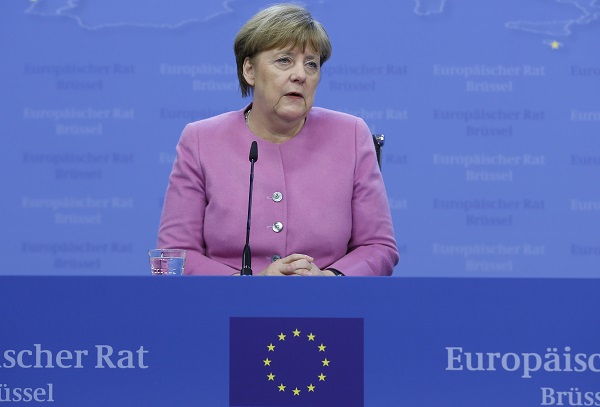Merkel calls for solidarity on refugees
Published : 23 Feb 2018, 00:24
German Chancellor Angela Merkel made a renewed pledge for a more even redistribution of refugees across the European Union (EU) on Thursday.
The Chancellor said she wanted to see a European asylum system that was "stable and finally reflected principles of solidarity, especially with regards to the fair distribution of refugees in the EU".
Merkel made the comments during a speech in the German Federal Parliament (Bundestag), before she is scheduled to attend a special EU summit in Brussels.
The veteran stateswoman suggested linking the transfer of EU subsidies to economically-weaker regions should be based on their engagement in EU asylum policy, so as to prevent free-riding issues.
"When we redistribute the money from the structural funds, we need to make sure that the criteria for obtaining such aid include the engagement of many regional and communal governments in accepting and integrating migrants," she argued.
EU interior ministers are trying to reach a final agreement on the shape of a "Dublin IV" system. Critics of the current rules have repeatedly highlighted that EU asylum policy puts member states at the Schengen Area's external borders at a disadvantage. Such countries include Italy and Greece, as they are legally responsible for the bulk of refugees.
Following the temporary collapse of "Dublin III" in 2015, more than one million asylum seekers arrived in Germany. Together with Austria and Sweden, Germany has thus found itself in a situation in which it must shoulder a disproportionate share of the financial and logistical burden of the "refugee crisis".
In order to ensure greater cohesion and effectiveness in EU asylum and immigration policy in the future, Merkel also demanded an expansion of joint efforts to secure the external border of the Schengen Area.
The Chancellor emphasized that a "strong" and "confident" Europe would be an overriding objective for a prospective new "grand coalition" between Merkel's CDU/CSU conservative alliance and the Social Democrats (SPD).
"Europe has never been more prominent in a coalition agreement," she noted. Merkel warned that Europe faced significant political and economic challenges which it could only overcome through close cooperation. She highlighted the impending exit of Britain from the bloc in 2019 as one such change.


